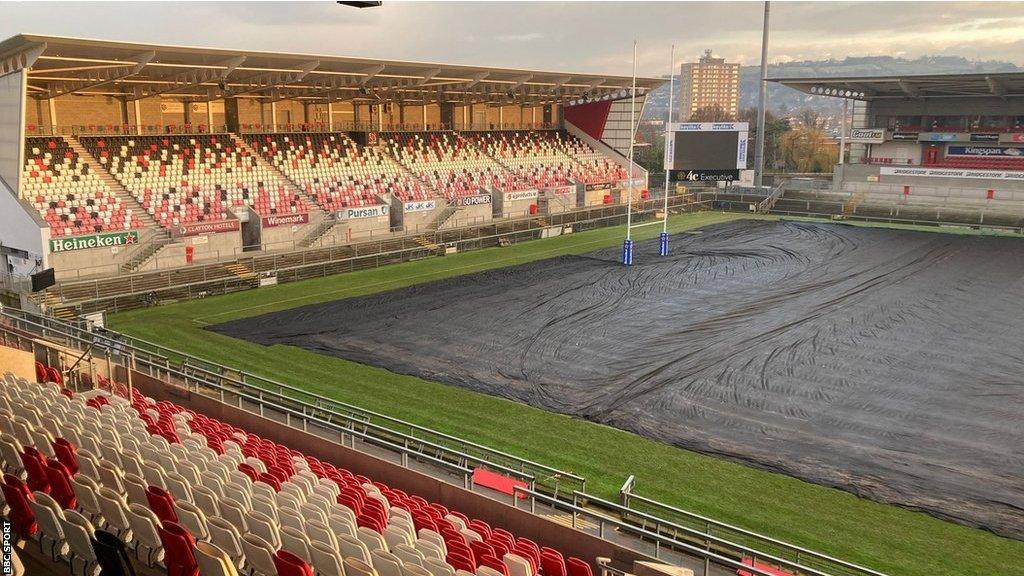Ulster Rugby: Irish province posts losses of £900,000 for 2022-23 season
- Published

Ulster used frost covers and heaters in attempts to preserve the playing surface before the game with La Rochelle was moved to Dublin the night before the match
Ulster chief executive Jonny Petrie says December's controversial Champions Cup tie with La Rochelle had a "huge impact" as the province posted losses of more than £900,000 in 2022-23.
The game was moved last-minute to the Aviva Stadium in Dublin after a frozen pitch at Kingspan Stadium.
At the time, Petrie added the move was likely to cost the province "around £700,000".
The losses for 2022-2023 were recorded in Ulster's annual report., external
In the report, Petrie added the controversy surrounding the game with La Rochelle was "an incredibly unfortunate situation that had a huge impact on our finances".
Ulster's Kingspan Stadium pitch was frozen in the build-up to the Champions Cup match, with a decision to move the game to Dublin made by the European Professional Club Rugby [EPCR] the night before the game, with no supporters permitted to attend.
However, Petrie said it was "playable" on the morning of the game but the decision had been made and Ulster had to refund tickets for the match.
Ulster have installed a new 3G artificial pitch at their Ravenhill home in Belfast for the upcoming season.
Financial records for the IRFU (Ulster Branch) show income increased by around £1.25m compared to the 2021-22 season, which largely came from grants and sponsorship.
However, expenditure also increased and Ulster were left with a deficit of £937,226 before tax. The 2022-2023 losses are exaggerated further by the £714,332 surplus in 2021-22. Those numbers change to a deficit of £717,856 in 2022-23 and a surplus of £476,505 the previous year once tax was applied.
When broken down, the deficit is made up of an increase in expenditure in administrative expenses, professional rugby expenses, general rugby expenses, domestic game match expenses, Kingspan Stadium expenses and "other developmental expenses".
Petrie added that "the costs of running a business have grown massively - utilities, match costs, staff salaries, rates".
"We are working hard to ensure that we are running as lean as possible while still delivering on and off the field," he added.
"This difficult financial climate was further exacerbated by the loss of revenues from the La Rochelle game - an incredibly unfortunate situation that had a huge impact on our finances.
"All of this contributes to an outlook which is not easy, frankly. We are tackling this head on through our executive team and through our communities and working in conjunction with the IRFU on renewing and reforming the funding model for the sport on the island - a big piece of work that will see us get to a more sustainable and certain future."